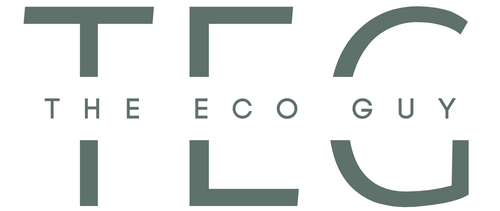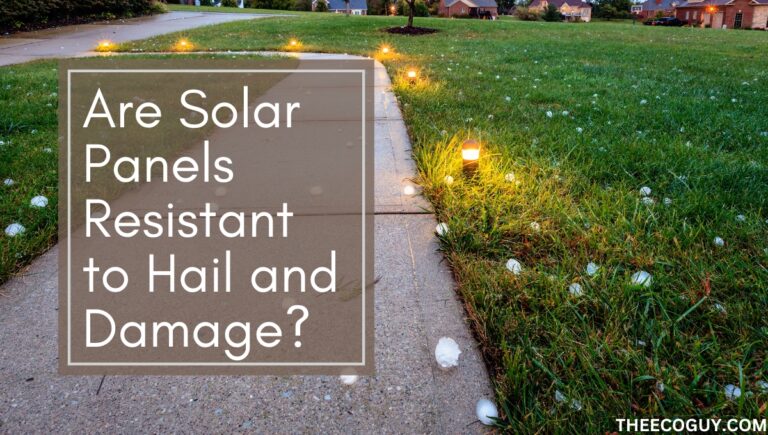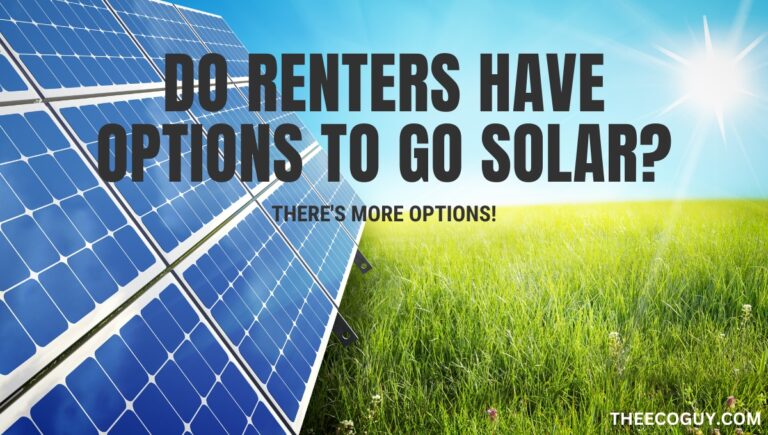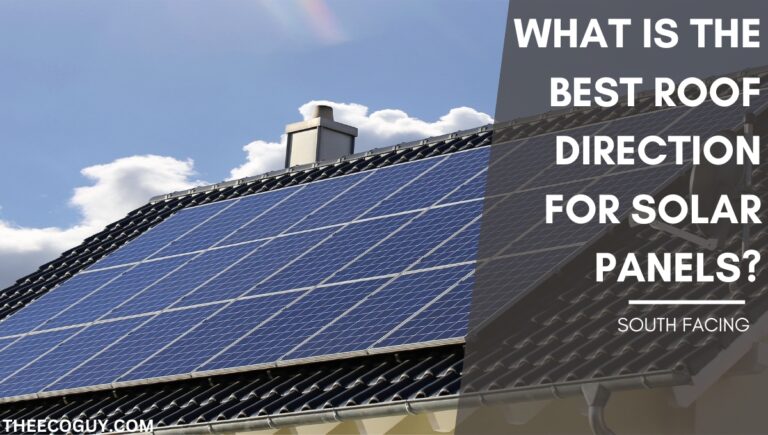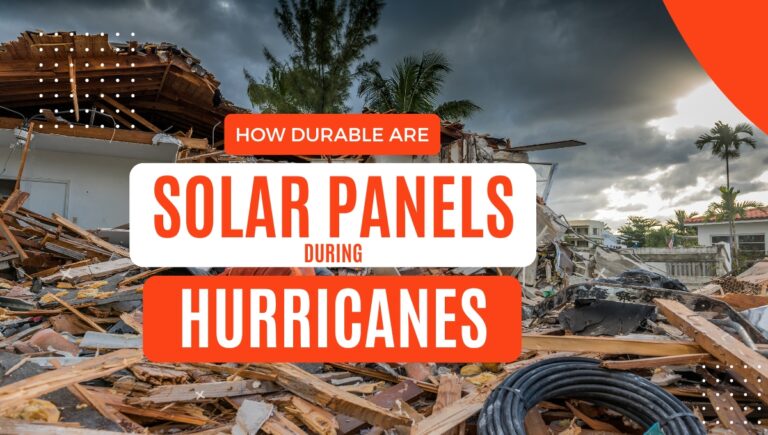What Kind of Solar Panels Are There? (Which Is Right for You?)
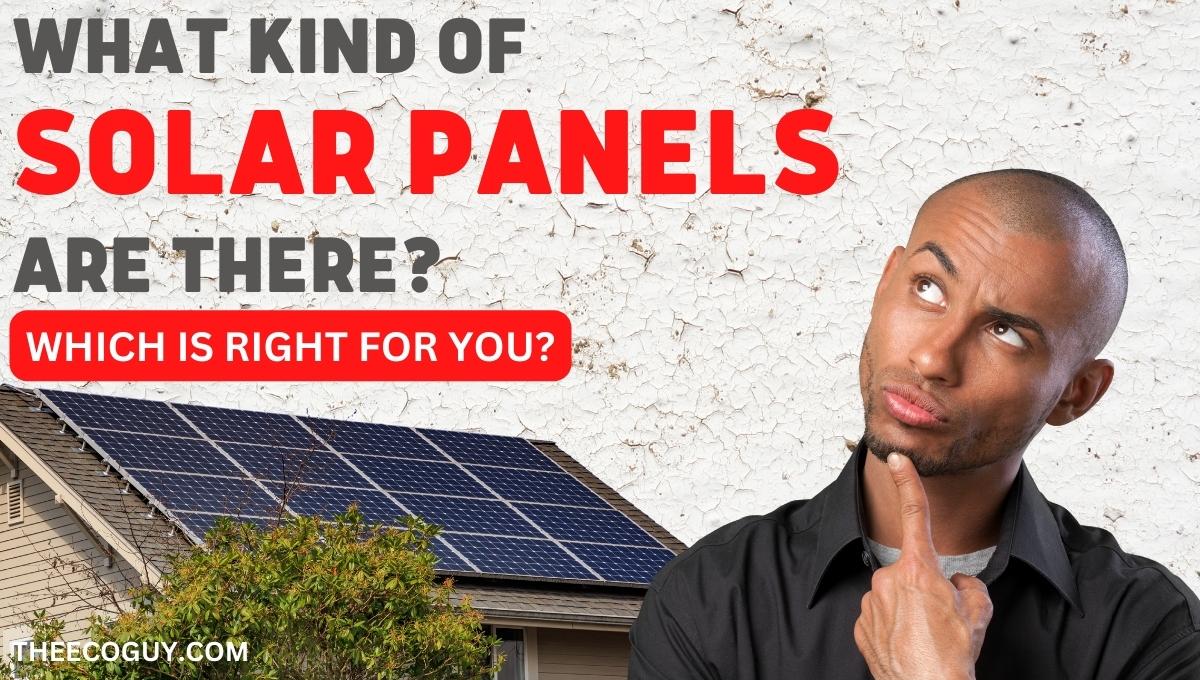
Knowing which solar panel is right for your home may be daunting. What if I told you I can help explain it all in this article?
When selecting a photovoltaic (PV) solar panel for your roof, you have three types to choose from monocrystalline, polycrystalline, and thin film. Each one is tailored to meet different needs and requirements.
This article will discuss the different types of solar panels, their benefits, and why they are important for a sustainable future.
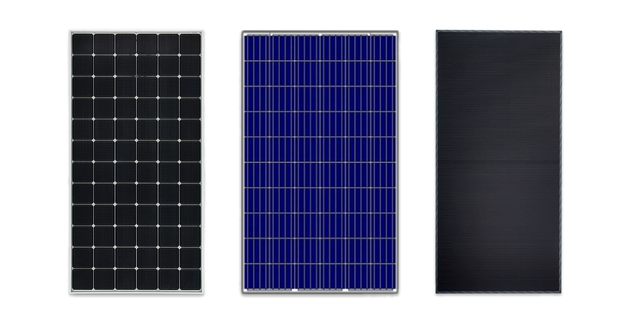
Types of Solar Panels
Monocrystalline
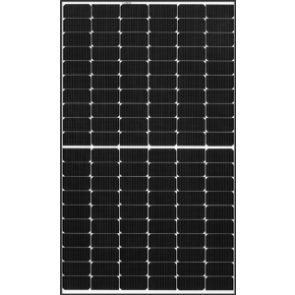
Monocrystalline solar panels are one of the most efficient and popular types of solar panels available on the market today. Monocrystalline solar cells are made from a single crystal silicon wafer, making them more efficient than other types of solar cells such as polycrystalline or thin film.
They also have higher efficiency ratings due to their design, which allows for greater absorption of sunlight. Monocrystalline panels require less space to generate an equivalent amount of energy compared to other types, making them ideal for small rooftop installations or areas with limited space.
Additionally, they perform better in low-light environments and can last longer than different types due to their superior construction and materials.
Polycrystalline
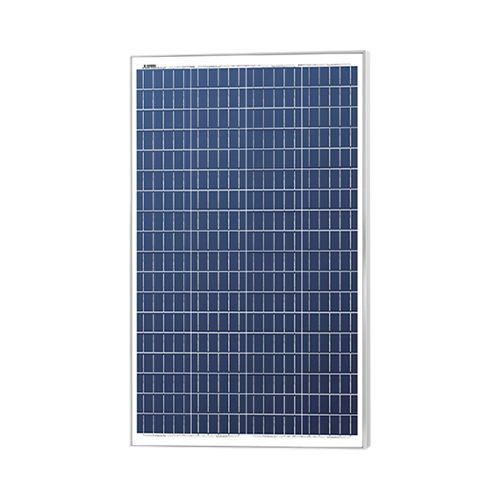
Polycrystalline solar panels are made from multiple crystalline silicon wafers, making them less efficient than monocrystalline cells.
However, they are more affordable and require less manufacturing time than monocrystalline cells.
Polycrystalline solar panels also perform better in high temperatures, making them ideal for areas with hot climates.
Thin Film Solar Panels
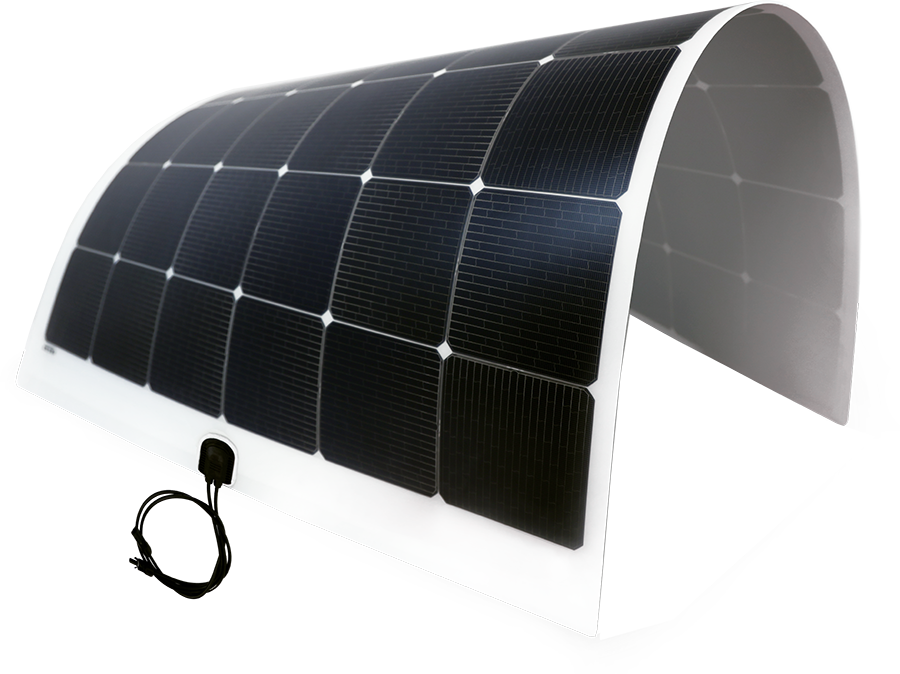
Thin film solar panels are made from thin layers of photovoltaic material, making them less efficient than monocrystalline or polycrystalline cells.
However, they are more affordable and require less space for installation due to their lightweight and flexible nature.
Additionally, some types of thin film technology can be applied directly onto building surfaces, making them a great option for urban climates.
Benefits & Drawbacks of Each Type of Solar Panel
Monocrystalline
Advantages:
- High-efficiency ratings
- Require less space for installation
- Perform better in low-light environments
Disadvantages:
- More expensive than other types of cells
Polycrystalline
Advantages:
- Less expensive than monocrystalline cells
- Perform better in high temperatures
Disadvantages:
- Lower efficiency ratings than monocrystalline cells
Thin Film Solar Panels
Advantages:
- Lightweight and flexible, require less space for installation
- Some types can be applied directly onto building surfaces
Disadvantages:
- Lower efficiency ratings than monocrystalline or polycrystalline cells
Overall, all types of solar panels have their own unique advantages and drawbacks. It is important to consider the type of installation and budget when deciding which type of panel is best for your needs.
Monocrystalline panels are typically the most efficient and expensive option, while polycrystalline panels are often the least expensive but less efficient.
Ultimately, it is up to the consumer to decide which type of panel works best for their individual needs.
Applications of Each Type of Solar Panel
Monocrystalline panels are best suited for small rooftop installations or areas with limited space due to their high-efficiency ratings and minimal footprint. They are also great for low-light environments where higher efficiency is needed.
Polycrystalline panels are ideal for hotter climates as they can perform better in high temperatures than other types of panels. They are also more affordable and require less manufacturing time than monocrystalline cells.
Thin film solar panels are a great option for urban homes due to their lightweight and flexible nature. Their ability to be directly applied onto building surfaces makes them ideal for city dwellers looking to take advantage of solar energy.
Additionally, they are the most affordable type of solar panel option. Roofs with Spanish tiles, corrugated metal sheets, and other materials not suitable for traditional panels are perfect for thin film solar cells.
What’s the Best Solar Panel Manufacturer?
There are many reputable solar manufacturer companies on the market today. Some of the most well-known include SunPower, LG Electronics, REC, Panasonic, ReneSola, and First Solar.
Each company has its own unique offerings when it comes to solar panels. SunPower is known for producing high-efficiency monocrystalline panels, while LG Electronics focuses on polycrystalline technology.
Panasonic, ReneSola, and First Solar all offer thin-film solar panels. REC offers a variety of cost-effective and high-efficiency solar panels. I personally have the REC Alpha Pure Black panels and love how sleek it is on my roof!

How Is Tesla Solar Compared to the Others?
Tesla Solar is quickly becoming one of the most popular solar panel manufacturers on the market today, thanks to its innovative technology and easy ordering process.
Tesla offers a wide range of high-efficiency monocrystalline panels that are designed to maximize energy output while minimizing space requirements.
Additionally, their intuitive online ordering system makes it simple for customers to find the best panels for their needs and get them installed quickly and easily.
Compared to other manufacturers such as Panasonic, LG, REC, and ReneSola, Tesla stands out with its unique combination of quality products and ease of use.
Tesla Solar is a great choice for those who own a Tesla vehicle and/or Tesla battery to stay within the Tesla ecosystem. With the Tesla Solar Roof and Powerwall, you can get a complete solar energy solution that is integrated with your existing home in a single mobile app!
For more information on Tesla Solar, visit Tesla.com and schedule a solar consultation with one of their representatives today.
Where Should I Go for Solar Quotes?
The best place to start is to search for local solar companies online. Many companies offer free quotes for solar installations, and it’s important to check with multiple companies to make sure you are getting the best price.
Additionally, many solar companies also provide educational resources so that customers can learn more about the different types of panels and their efficiency ratings.
It’s also important to read customer reviews to make sure you are dealing with a reputable provider.
EnergySage.com is an excellent place to start your solar journey. I personally used it and received 4 quotes from local companies in less than 24 hours!
The best thing about EnergySage.com is that they don’t work for solar companies, so there’s no conflict of interest or kickbacks.
Their intention is to help you find the best solar deal for your home and needs. They’re also there for any solar-related questions. I highly recommend EnergySage.com to family, friends, and you!
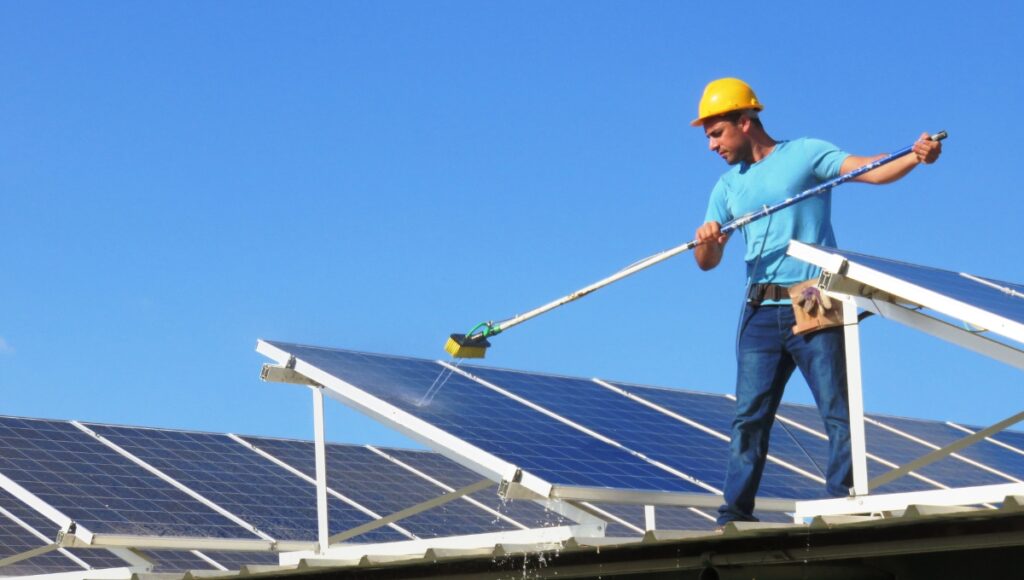
Maintenance & Upkeep
Solar panel systems require little to no maintenance once they are installed. However, it is always good practice to periodically check up on them.
This can include cleaning the panels of dirt and debris, making sure all connections are tight, and checking for any signs of wear or damage.
Below are a few steps you can take to keep your solar panel system running optimally:
- Clean your solar panels regularly – dirt and debris can reduce the efficiency of your system
- Check for signs of damage or wear and tear, such as cracks in the panels, loose wires, etc
- Make sure all wiring is secure and properly insulated to prevent corrosion or other problems
- Inspect your batteries on a regular basis to ensure they are charged correctly
- Monitor the performance of your system by checking power output readings
- Have a professional inspect your system annually to make sure everything is functioning properly
- Take advantage of available tax credits and incentives to help offset costs associated with maintaining your solar panel system
You may also reach out to the solar company that installed your system for additional maintenance and upkeep advice, as they will be familiar with the specifics of your setup. Keeping your solar panels clean will ensure the longevity of your system and maximize its long-term output.
Should I Get Solar?
Before we wrap it up, many will ask – “should I get solar”? The answer to this question depends on your individual needs, goals, and budget. Solar panel systems can have a significant upfront cost, but many are finding that the long-term benefits outweigh the initial investment as solar technology continues to improve and become more affordable.
With tax credits and other incentives available for those who switch to solar power, it’s becoming increasingly easier to make the transition. Lastly, some states such as California has Net Energy Metering (NEM) laws that benefit those with solar power systems by paying you the market rate for excess energy produced.
Wrapping It Up
Solar panels are an efficient and cost-effective way to generate electricity for your home or business. There are a variety of types of solar panels available, each with different advantages and disadvantages in terms of efficiency, cost, and installation complexity.
Monocrystalline solar panels are generally the most efficient, but also tend to be more expensive than other types. Before making a purchase, it’s important to do your research and compare quotes from multiple vendors to make sure you are getting the best deal. I personally recommend EnergySage.com.
Additionally, regular maintenance and upkeep of your system are essential for ensuring its efficiency and longevity. By following these tips, you will be able to reap the full benefits of solar energy!
